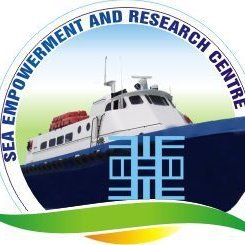The maritime sector in Nigeria is facing a critical juncture, potentially jeopardizing its status as a logistics hub in West Africa. This precarious situation, as highlighted by the Sea Empowerment Research Centre (SEREC), carries significant economic ramifications, with projections of substantial revenue losses and diminished investment opportunities. The core issue revolves around the declining efficiency and competitiveness of Nigerian ports, particularly concerning congestion, delays, and bureaucratic hurdles. This has led to businesses diverting their cargo traffic to more efficient ports in neighboring countries, triggering a ripple effect of negative consequences for the Nigerian economy.
The financial implications of losing the logistics hub status are substantial. SEREC estimates annual losses of N130 billion in customs duties, value-added tax (VAT) on imports, and other associated taxes due to reduced port activity. This downturn in revenue collection could translate to a 10% to 20% decrease in overall government revenue, potentially amounting to a staggering N300 billion to N600 billion annually. Such a significant shortfall could severely constrain the government’s ability to fund critical infrastructure projects and essential social services, impeding national development.
Beyond the immediate loss of government revenue, the decline in port activity also threatens to stifle foreign investment. As businesses gravitate towards more efficient and cost-effective ports in neighboring countries, Nigeria risks losing billions of naira in potential investments. SEREC estimates potential investment losses in the logistics sector alone to range from N500 billion to N1 trillion, assuming a 20% decline. This loss of investment further exacerbates the economic challenges, hindering job creation, technological advancement, and overall economic growth.
Cumulatively, the combined impact of reduced government revenue and diminished foreign investment paints a bleak economic picture. Nigeria faces a potential total loss of between N800 billion and N1.6 trillion, a significant setback to its economic aspirations. This underscores the urgent need for proactive measures to address the underlying issues plaguing the maritime sector and restore Nigeria’s competitiveness in the regional logistics landscape.
To mitigate these potential losses and reclaim its position as a regional logistics hub, SEREC proposes a multifaceted approach involving strategic policy interventions and infrastructural improvements. Crucially, the adoption of digital solutions, such as single-window trade platforms, is highlighted as a key driver for enhancing efficiency, reducing costs, and streamlining trade processes. These platforms can significantly reduce bureaucratic bottlenecks, expedite cargo clearance, and improve transparency, making Nigerian ports more attractive to businesses.
Furthermore, the development of a comprehensive national logistics policy, underpinned by robust infrastructure reform, is deemed essential. This policy should prioritize investments in rail-port connectivity, secure dry ports, and specialized logistics zones to optimize the efficiency and security of logistics operations. Addressing the persistent challenges of congestion and delays at the Apapa and Tincan ports is also paramount. These critical ports serve as major gateways for international trade, and their inefficiency directly impacts the overall competitiveness of the Nigerian maritime sector. Implementing measures to decongest these ports and streamline their operations is crucial for restoring efficiency and attracting businesses back to Nigerian shores.














